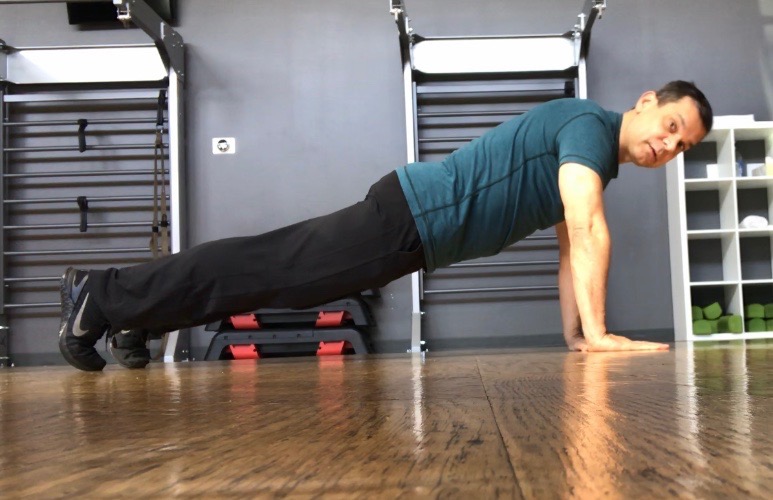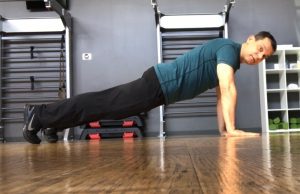How many push-ups can you do?
The question makes some people uncomfortable, bringing up memories of awkward PE classes back in school. But the answer could be helpful to getting or keeping you on track for a better future.
Fitness pros have been discussing a new study that suggests push-ups can predict heart health. If you cannot do more than 10, you might need to make some changes.
It was conducted by Harvard and other institutions, and then published by the American Medical Association, so it is legitimate. But it raised some questions, too, since it was conducted only on white men. And no result of one simple assessment gives anyone a “free pass” to give up healthy habits.
Still, this is a helpful way to get us thinking and talking about cardiovascular disease, which remains the No. 1 killer worldwide. Contributing factors include diet, smoking, drink – and a lack of exercise. But predicting an individual’s likelihood to develop heart disease has been problematic. This research seems to say that a simple test can act as a no-cost and generally effective crystal ball.
Scientists studied the health of hundreds of men over several years. They didn’t set out to examine push-ups. But the data revealed that men who could complete 11 or more went on to have lower risk of heart attack and other cardiovascular problems later in life.
Men who could do 40 push-ups were 96 percent less likely to develop problems than those who could not manage more than 10.
We Asked Some Fit Friends
We talked to some fitness friends about their thoughts and asked how many push-ups they can do at once.
“I don’t normally do push-ups as part of my workout routine,” Mitch said. “But at age 65 and dealing with a left elbow issue, I was still able to hit over 40 pushups with no problem.”
Larry: “I just turned 61 yesterday and I banged out 61. I practice every day. Now, I don’t expect to be able to keep that up forever, but it’s pretty cool at this point in time.”
Rick: “The more push-ups – or any exercise, for that matter – you can do, the better shape you’re in. So, you’d be more likely to have a better cardiovascular system. If you’re sedentary, you have weaker muscles.”
Martin: “I don’t like push-ups as a measure of fitness. It’s too one-dimensional. I know a lot of super cardio-fit people who can’t do them.”
A Reminder of What’s Important
So, what about you? Do you know how many push-ups you can do?
If you’re concerned, ask your doctor about how exercise and diet can lower your risk. We can get you started in the right direction, or help keep you going if you’ve already begun your fitness journey.
It’s important to resist drawing universal conclusions from one study. But it’s also undeniable that healthier living leads to longer and better living.
If this study gets one person to put down the junk food, get off the couch, and start taking better care of herself, then it’s done a great service.
Holly Kouvo is a personal trainer, functional aging specialist, senior fitness specialist, brain health trainer, writer, and speaker.


